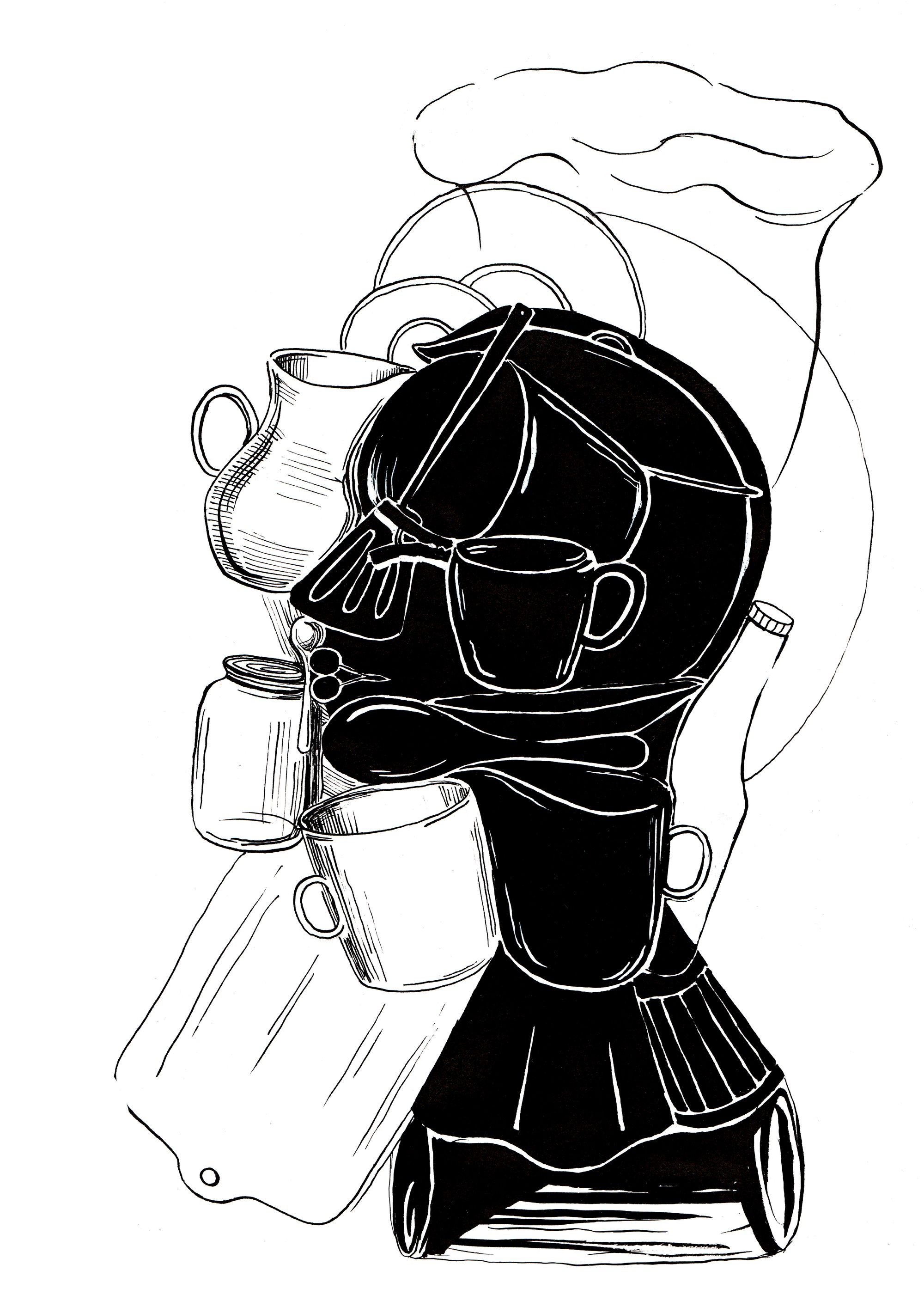
Serving Up Notes
Notes.
Such a heavy little word that can make or break your soul as a writer. But it shouldn’t. The purpose of getting notes is to learn what is and what isn’t working for that specific reader. Sure, the notes of a studio exec carry more weight in that moment than the notes of a peer, but both sets of notes carry an immense amount of value.
Personally, I’ve found the easiest way to accept notes is to not only think of the intention of the note giver, but to also think of their role in the whole process. To be truly successful at taking notes you’ll need to get over that fragile ego we all have as writers, but that’s a whole other article.
One step at a time.
Let’s break down who exactly you are getting notes from. There are a multitude of types of notegivers, but we’re going to touch on notes from peers, reps, a writers’ room and/or showrunner, and your basic studio notes.
Each situation will always be a little different but these are the general four and how I mentally handle this experience. For this example, you are a chef and your script is the meal. Why? Because I’m hungry, recently rewatched "The Bear," and this analogy works.
Let us begin …
Peers:
You have asked another aspiring chef if they are hungry. To which they respond, I could eat. Then you hand them a meal and ask them to critique it. Every so often this exchange will come with a logline or genre, but that’s just basically telling them they’re about to eat Italian.
You didn’t ask what they felt like eating, or even what they enjoyed eating. You handed them a meal and asked then to give you notes.
Manager and/or Agent:
Your reps have found chefs before, helped them land work in their dream restaurants, start their own brick and mortar, even got them a deal to write a damn cookbook! They have also eaten meals you’ve prepared before. They enjoyed those meals, or the potential within those menus, enough to decide to partner with you. They believe in your cooking. They not only believe in your cooking, they believe they can get it into the hands of the right investors, and if all goes right, you’ll be toasting champagne at your own restaurant opening one day!
Writers Room:
You now work in a restaurant as a line cook! It might be a new restaurant still creating its vibe, or it may be a famous restaurant known for a specific meal. Every show, like every restaurant, is run a little different. Depending on where they are in their trajectory, you’re either helping to create the dream recipes of a specific chef, executing the new recipes of that special chef, or you are learning their classic recipes and how to execute them flawlessly.
Studio/Production Company:
This is always a case-by-case basis but look at these notes as if you are feeding a table of investors or potential investors. Let’s say your reps got you meetings. You knocked those meetings out of the park, you sold this group of folks on a specific type of restaurant, and now they’re here to see if you delivered.
Now that we’ve broken down who you are feeding, let's break it down further.
Peers:
Remember, these people ate a three-course meal you prepared with absolutely no say in what they were eating. They’re also test subjects in a way. Imagine someone saying taste this, then shoving food in your mouth. They might not like the spice, smell, or texture, but that doesn’t mean their notes aren’t valid. When it comes to notes, if someone rips your work to shreds, that isn’t your arch-nemesis, that’s the most helpful diner you’ll get.
This is the stage you need someone to pull that thread because if it’s dangling, someone later down the line will pull it, too. The difference? If someone pulls it here, they tell you, and you can work on it. When you send your scripts out to potential reps or production companies, nobody will tell you what didn’t work, they’ll simply tell you it wasn’t for them. At this stage you want your peers to rip apart that meal as if they’re looking for problems. Sure, these people aren’t all professional chefs yet, but they’re also currently honing their own craft and don’t forget, they all eat.
Ask follow up questions. If someone says I didn’t like the sauce, ask why. Was it too bitter? Too sweet? Too thick? Too runny? While you probably won’t agree with the answer, keep it in mind. You may have someone else bump on that down the road, and now you are prepared to calmly, professionally, defend your story choice. If enough people feel the sauce/character/storyline isn’t working, there is a chance you served a delicacy only you enjoy and that is only successful if you’re only cooking for yourself.
No matter what you do, never tell this human who took time out of their life to blindly eat a meal you provided that their tastebuds are wrong. This isn’t a place to defend yourself. This is where you take it on the chin.
Notes from your reps:
Your manager and/or agent doesn’t simply know what you have to offer, they know what investors are looking for. They know the hot new trends, the mandates, what they’re hearing down the line. Their notes are to take that meal they knew you were able to pull off, and elevate it to be an investors dream. They know what meals you can make that might be similar to what another chef is doing in a restaurant downtown that you could cut your teeth as a line cook. It’s always a case-by-case basis. Some reps are very hands on. Others give a longer leash. Neither are right nor wrong, it’s what works best for you.
These notes offer a chance to talk things through. They are coming from a place of camaraderie. They won’t succeed unless you succeed. These folks will eat the same meal multiple times while you attempt to perfect your coriander levels, and they’ll do it with gusto. Respect their thoughts, talk them through, and utilize that they know what’s selling.
Notes from the room and/or showrunner:
Working in a writers’ room, you’ve been given a recipe. Some rooms give you the background of where the concept came from, a detailed recipe, and tips from those who have made it before. Other rooms give you a recipe scratched on the back of a napkin with no measurements. It’s a toss-up and a challenge. You simply try to make the meal you’ve been asked to cook. If you’re hired by a place with the best chicken parmesan in the world, and you make a “deconstructed version” with a macerated tomato beside a chicken breast, you won’t make it past the outline stage.
This is the most “Yes, Chef!” you’ll ever be. The writers within that room are all working towards the same tone, and that tone was created by the showrunner. While on a show, you are serving someone else’s dream dishes. It’s a specific skill, or muscle, you’ll need to practice and do to the best of your ability.
Notes from the studio:
These notes MATTER. They may also be a little tougher to decipher. These folks normally haven’t gone to culinary school, and they don’t spend hours waxing poetic about cooking on Twitter. They know the concept they were sold on and how they felt about what they ate. They also know what they are trying to sell. Sometimes it’s tough for a chef to see beyond the cutting board, but to have that dream restaurant, people need to want to eat your food.
You’ve used lofty terms that sounded perfect when you pitched these investors, they were all intrigued by the idea of Argentinian cuisine with a So-Cal flare. Yet now they’ve tasted it, and it’s not what they expected. Maybe it’s too So-Cal. Maybe too Argentinian. They may not be able to pinpoint what they don’t like but there’s an aftertaste that needs addressing.
These notes can be hard to swallow, you’ve now made this meal so many times and are proud of what you’ve served. Keep in mind, these people heard so much about this meal, it’s easy to feel let down when something is built up in your mind before you even taste it.
Digest these notes. Look for that classic “note behind the note.”
You might even get a wild one here and there. Did one tell you they didn’t like the mushrooms when there were none? Maybe there’s too much going on in that scene, so much so they thought they had mushrooms. Did someone suggest you cook the chicken differently, but you served them lamb? Sounds to me like they were confused and some clarification on the plate, or page, could be helpful.
While you don’t want to pester them with a million questions, ask for clarification. If they didn’t like the steak, ask if it was the preparation or the flavor. No need to go and change your marinade when it turns out the problem was it was overcooked for their liking. Then take their notes and try and find a way to keep your choices, flavors, and soul, while pleasing their needs as well.
It’s a dance, but it can be the dance of a successful chef.
No matter who has given you notes, the proper way to accept them always starts with the words, "Thank you."
While I could talk notes all day, and gladly will dive in further if anyone is still hungry, I hope this is enough to tide you over. Until then, sharpen your knives, don’t forget to thank your readers, and always tip your waitresses.
*Feature image by by okalinichenko (Adobe)
